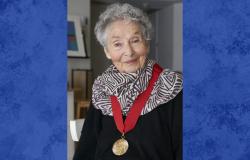June 21, 2025 will remain engraved in the annals of municipal politics as the day when Paul Arcand, in a final act of outspokenness, publicly ended the political career of Valérie Plante.
What was supposed to be a day of emotions to salute the end of an exceptional radio career turned into a public trial in the administration of the mayor of Montreal.
Arcand, with a simple scathing remark, drove the last nail into the political coffin of a woman who, a few months earlier, still calmly considered running for a third term.
At the origin of this coup de grace: the controversial closure of the terraces of several restaurants during the Formula 1 Grand Prix.
In the middle of an international celebration, when the city should have been shining brightly, Montreal found itself under fire for measures that many described as absurd.
And it is on this subject that Arcand, with all the precision of a surgeon, made his attack:
“I would like to ask the Montreal fire department to let us finish the show. We respect the capacity rules, we have no marquee, so please, everything is under control and everything is happening according to the rules. »
A sentence loaded with irony which echoed the chaotic management of the event by the municipal administration.
This intervention, far from being innocuous, had the effect of a bomb. In a few seconds, Paul Arcand summed up the fed up of a large part of the population in the face of a mayor considered disconnected from the realities of the city.
Social networks went up in flames, amplifying the shockwave. This public humiliation crystallized a deeper malaise: that of municipal management which had been accumulating errors for years.
Valérie Plante, who benefited from broad popular support during her election in 2017, called herself an emblematic figure of political renewal in Montreal.
However, over the years, his mandate had been marred by controversial decisions: multiplication of poorly planned cycle paths, chronic traffic jams, poor crisis management and, above all, a growing feeling that the interests of traders and citizens were relegated to second place. plan.
The terrace affair was the straw that broke the camel’s back.
This memorable confrontation between Paul Arcand and Valérie Plante was not, however, an isolated event. Indeed, it was not the first time that the legendary host had put the mayor in a delicate position.
Since the start of his mandate in 2017, Arcand had often pointed out the inconsistencies and failures of the Plante administration, never going overboard with his words when it came to defending the interests of Montrealers.
One of the notable episodes dates back to 2020, in the midst of a health crisis. While the City was struggling to manage the economic impacts of the pandemic on merchants, Arcand openly criticized the measures taken by the municipal administration, in particular the closure of major roads to favor cycle paths.
“You ask merchants to survive, but you cut them off from access to their customers”he said on the air, summarizing the feeling of frustration shared by many Montreal entrepreneurs.
In 2023, another confrontation between Arcand and Plante made headlines. This time, the subject focused on the explosion in costs linked to waste management and recycling in the metropolis.
The host confronted the mayor over her inability to offer concrete solutions, going so far as to reproach her for being more concerned about her image than resolving problems.
This moment, immortalized in extracts widely shared on social networks, had already weakened Plante’s credibility with part of the electorate.
But June 21, 2025 marked the culmination of this conflict.
If the previous confrontations had revealed tensions, this last one acted like an electric shock, amplifying the general fed up of Montrealers with their mayor.
For many, Arcand had become the voice of reason, the interpreter of a popular discontent that had long been ignored.
With hindsight, it is obvious that this tense relationship between Paul Arcand and Valérie Plante contributed to shaping the public perception of the latter.
While she hoped to embody renewal and audacity, her inability to respond to criticism from a renowned journalist like Arcand gradually shattered the image of a strong leader that she sought to project.
By leaving radio that day, Arcand not only turned the page on an exceptional career. He also sealed the fate of an administration that he considered incapable of meeting the challenges of a city in rapid change.
For Valérie Plante, this final affront became the symbol of her mandate: a mixture of great aspirations and bitter disillusionments, exposed in broad daylight by a voice that nothing seemed able to silence.
Following the show, Marc De Foy, a sports journalist well known for his harsh criticism, hit the nail on the head with a devastating article.
He called Montreal a “dying city,” comparing its decline to that of New York in the 1970s, a time when crime and chaos dominated.
For De Foy, Valérie Plante’s errors are not isolated cases, but the symptom of a narrow vision poorly suited to a modern metropolis.
The article did not stop at the management of terraces. De Foy broadened his analysis, criticizing the overall strategy of the Plante administration.
He recalled that the city, once proud and dynamic, now seemed trapped in a spiral of decline. Traders, particularly on arteries like Rue Saint-Denis, have been sounding the alarm for months, victims of decisions which had transformed their neighborhoods into commercial deserts.
“Where is common sense? “, he wrote, a cry from the heart that resonated with that of many Montrealers.
Before this fateful day, Valérie Plante still planned to run for a third term in 2025. Despite criticism, she retained a loyal base who saw her as a champion of ecological transition and modern urban planning.
However, the Arcand episode shook his supporters, exposing widespread discontent.
The media coverage of the episode, combined with Marc De Foy’s article, led to an avalanche of criticism which made any electoral campaign untenable.
The polls collapsed within weeks, forcing Valérie Plante to announce, reluctantly, that she would not seek a new mandate.
For many, this decision was an admission of resounding failure.
It is ironic that Paul Arcand, who left radio that day, became the symbol of the end of the Plante era. Far from being content to leave the stage quietly, he chose to make his mark by dealing a fatal blow to an administration which, according to him, embodied everything that no longer worked in Montreal.
His remark, both subtle and merciless, sums up the essence of what he represented: a free media, without fear of disturbing the powerful.
For Valérie Plante, this episode will remain as a personal betrayal. In her close circles, it is said that she will never forgive Arcand for using her platform to destroy what remained of her public image.
But was it really Paul Arcand who caused his downfall, or was he simply the messenger of a deeper malaise, shared by a large part of the population?
That day was supposed to be Paul Arcand’s. A day to celebrate a respected entertainer and his many years of service.
But, ironically, it was Valérie Plante who ended up stealing the show, despite herself. It was not the applause of a grateful crowd that she received, but rather the public humiliation that sealed her political destiny.
In one stroke of brilliance, Paul Arcand achieved what years of critics had failed to do: put an end to the career of Valérie Plante.
This saga will remain as a stark reminder of the fragility of power and how a simple phrase, at the right time, can change the course of history.





